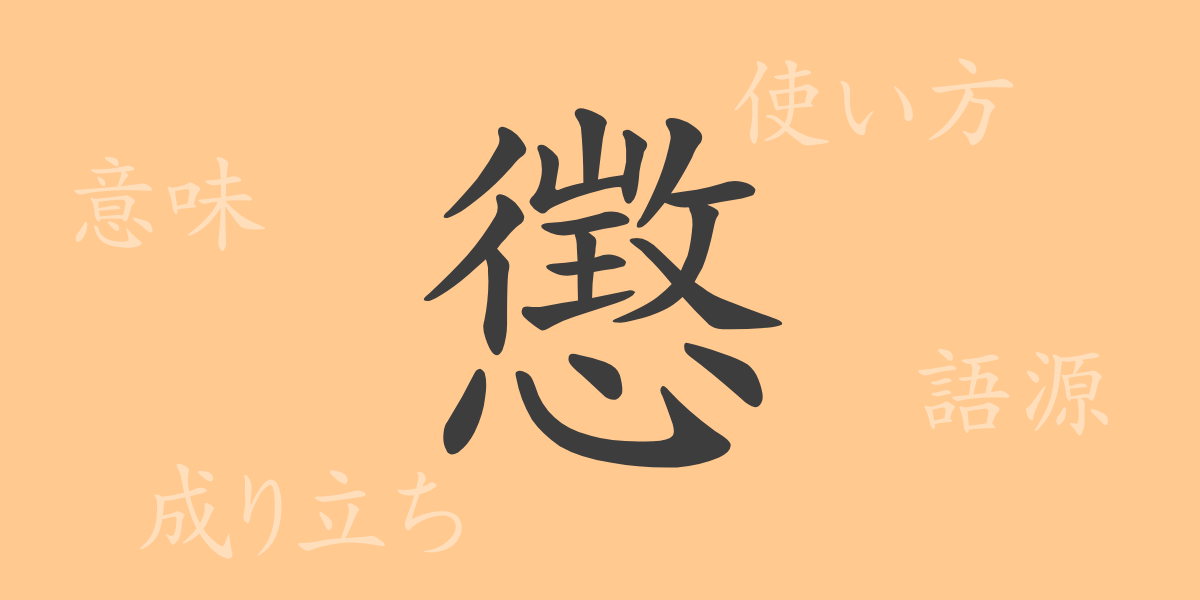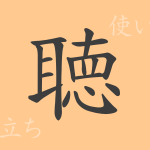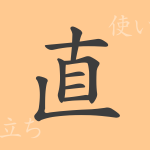The Japanese kanji ‘懲(チョウ)’ embodies the rich expression of emotions and actions in the language. Deeply rooted in our lives and society, this character offers a glimpse into the depth of Japanese culture. This article will delve into the unique history, meaning, and everyday uses of ‘懲’, offering a fresh perspective on the complexity of Japanese.
Origins of ‘懲(チョウ)’
The kanji ‘懲’ originated from ancient Chinese seal scripts, originally combining the concepts of ‘徴(チョウ)’, signifying ‘to teach’ or ‘to admonish.’ Over time, it evolved to imply ‘punishing to correct wrongdoing,’ now commonly associated with ‘disciplining’ or ‘lessoning’ in various contexts.
Meaning and Usage of ‘懲(チョウ)’
‘懲’ primarily conveys meanings such as ‘to chastise’, ‘to learn from mistakes’, and ‘to discipline’. It’s used both socially, to address violations of law or ethics, and personally, to reflect learning from past errors.
Pronunciation, Stroke Count, and Radical of ‘懲(チョウ)’
Understanding ‘懲’ extends to its pronunciation, structure, and composition:
- Pronunciation: On’yomi ‘チョウ’, Kun’yomi ‘こ.りる’, ‘こ.らす’, ‘こ.らしめる’
- Stroke Count: 18 strokes
- Radical: Heart or ‘忄(りっしんべん)’
Phrases, Idioms, and Proverbs Using ‘懲(チョウ)’
‘懲’ appears in numerous idioms and proverbs, each illustrating its importance in the language:
- 懲戒(ちょうかい) – Discipline imposed for breaking rules.
- 懲罰(ちょうばつ) – Punishment for crimes or misconduct.
- 懲り懲り(こりごり) – Thoroughly disillusioned, wanting no further part in something.
- 懲りない(こりない) – Unrepentant, continuing to make the same mistakes.
- 懲りずに(こりずに) – Undeterred by setbacks, willing to try again.
Conclusion on ‘懲(チョウ)’
The kanji ‘懲’ encapsulates significant concepts essential for personal growth and maintaining societal order. Through its varied applications and phrases, it teaches us wisdom to learn from mistakes and shape a better future. Understanding and using ‘懲’ effectively enhances communication skills in Japanese, reflecting its profound role in the language.

























